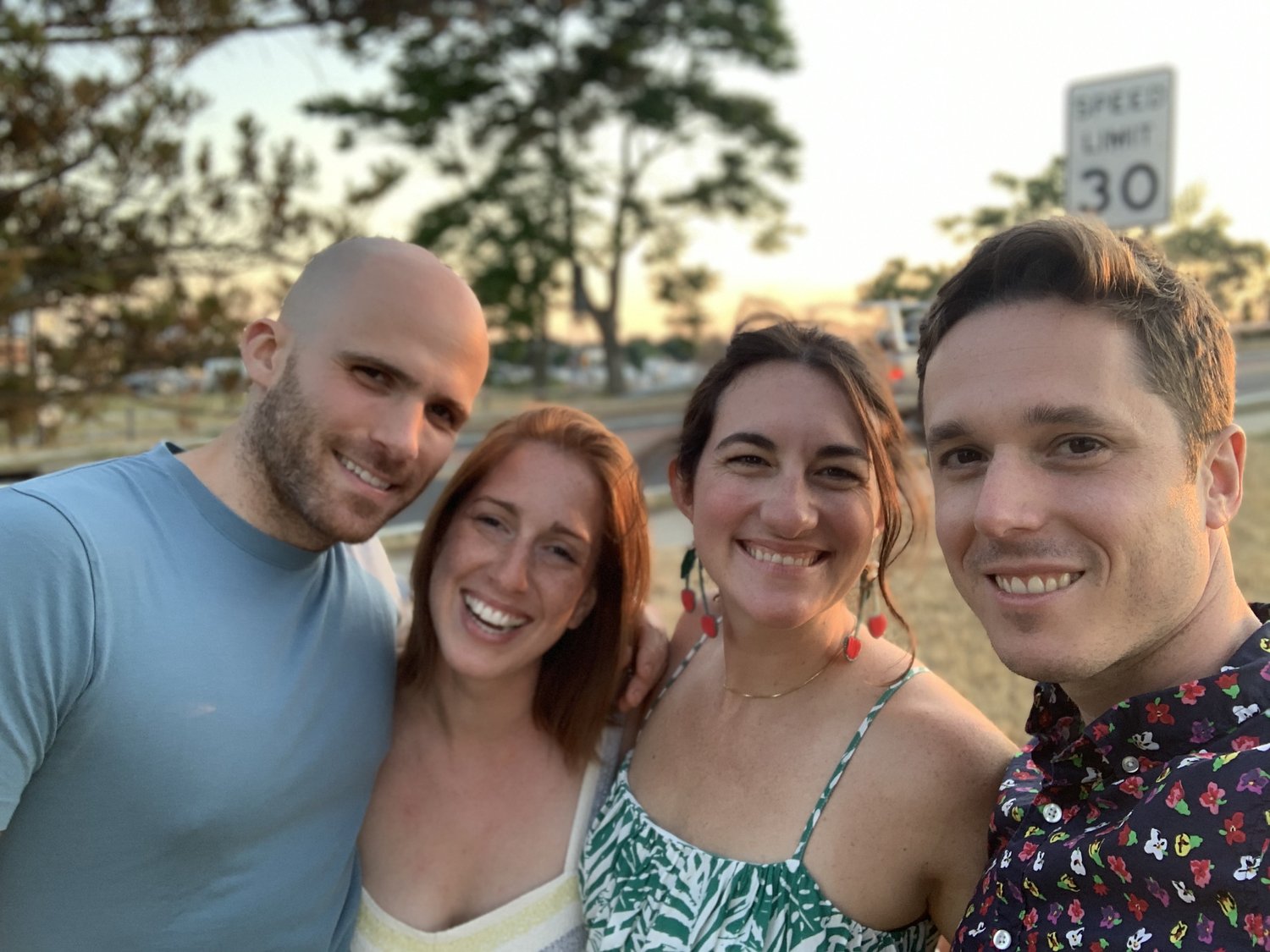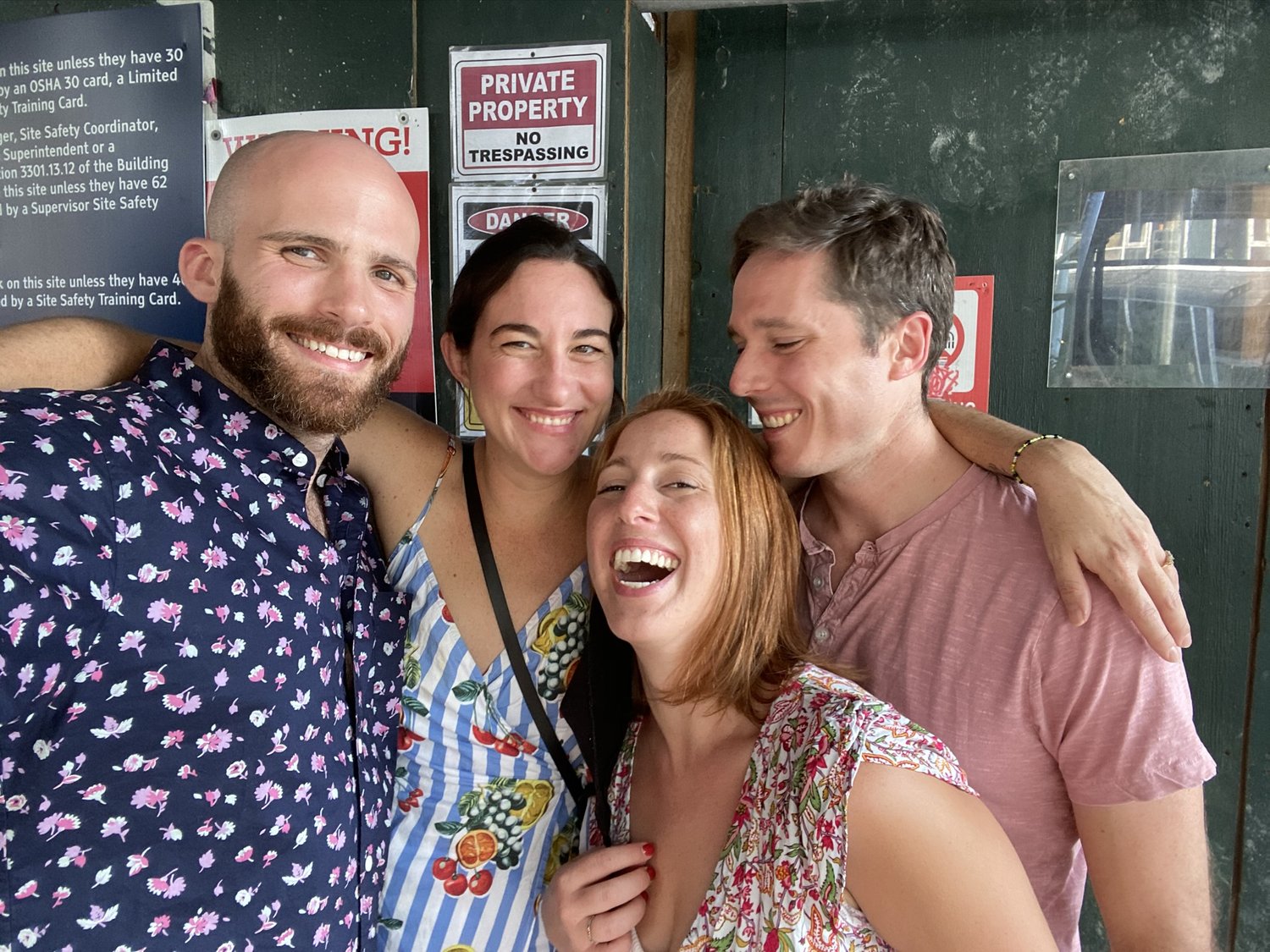Polyamorous Rights Are Civil Rights, NYC Court Rules

A recent court case in New York City, West 49th St., LLC v. O'Neill, has set a new precedent, and I couldn’t be more thrilled — both as a relationship and sex therapist and as a polyamorous bisexual person. In her ruling, NYC Civil Court Judge Karen May Bacdayan concluded that polyamorous relationships — in this context, consensual relationships involving three or more partners — are entitled to the same legal protections given to two-person relationships.
This ruling comes on the heels of a couple other victories. In June 2020, Somerville, Massachusetts passed an ordinance that allows groups of three or more people who “consider themselves to be a family” to be recognized as domestic partners — and then the neighboring town of Cambridge passed a broader ordinance not only recognizing multi-partner relationships, but also the right of more than two people to be a child’s legal parents.
West 49th St., LLC v. O'Neill concerned a man named Scott Anderson, who lived with his partner, Markus O’Neill, though the two were not officially wed. Scott Anderson was legally married to Robert Romano, but they didn’t live together. Well, Scott Anderson died, and the building owner said that Markus O’Neill had no right to renew the lease because he was “just a roommate.” The court decided that there needed to be a hearing about whether the three men involved were in a polyamorous relationship. What does this mean? It means that the judge determined that Markus O’Neill deserves a chance to demonstrate their relationship and potentially renew the lease to stay in his own home (which anyone who lived there with Anderson and had a familial relationship would have the right to do).
The judge in the case cited past cases, including Somerville and Cambridge, then said: “Why then, except for the very real possibility of implicit majoritarian animus, is the limitation of two persons inserted into the definition of a family-like relationship ... Is ‘two’ a ‘code word’ for monogamy? Why does a person have to be committed to one other person in only certain prescribed ways in order to enjoy stability in housing after the departure of a loved one?”
Amen.
View fullsize

As a bi, polyamorous person, this news means the world to me. I have three primary partners. We live together, own a home together, intend to have children together — and I’m committed to all three of them, equally. The world, however, is still set up for pairs of two and doesn’t recognize multiple partners as genuine relationships. I can’t tell you how many people look at me with a puzzled expression when I tell them I have three partners. “Who is your real partner, though?” As though one of them is more legitimate than another. There are so many other misconceptions — the level of commitment, happiness, and love, plus about a million assumptions about sex. We’re currently in the process of going through divorces, which is also confusing to a lot of people. The four of us started as two married couples — but we’re not that anymore. It’s complicated, but working it out is worth it.
It may be overstating things to compare West 49th St., LLC v. O’Neill to Obergefell v. Hodges, the Supreme Court decision that legalized same-sex marriage, but they are both of a kind. Establishing legal rights for polyamorous people would be a game-changer. For example, if I get sick and terminally ill, I want all three of my partners to have the same level of legal access to me in the hospital and the same power to make decisions. I don’t want just one to be by my bedside if I’m sick and/or dying. Also, we all live in one house — but because relationships with more than two people aren’t fully legally recognized, it’s very difficult to set up insurance. A “four-person family” usually means two adults and two kids, but in this case, it’s four adults. Explaining this makes my insurance agent’s head explode. Having full legal rights would ensure that my partners and I have the same spousal rights to make decisions with and for one another — medically, financially, and otherwise.
View fullsize

As anthropologist Kim TallBear has written: “Like monogamy, the couple (especially when legally married), is legitimated and rewarded at every turn — US health insurance eligibility, clearer child custody arrangements, tax filing benefits, and general public recognition and validation. In our society, this type of arrangement is assumed as the logical endpoint, what we are all looking for or should be looking for.”
Our culture is steeped in monogamy, but please don’t get me wrong — monogamy isn't an inherently bad thing. For many people, monogamy is the best relationship structure! It just doesn’t need to be the only one. Think about the conversation around sexual orientation — humans are assumed to be heterosexual until they “come out” as a different sexual orientation. What if we allowed everyone to be themselves? What if we opened our minds and relaxed our assumptions? What if everyone, regardless of who they are, had legal rights?
Monogamy isn’t synonymous with commitment. Our culture and society have normalized multiple committed platonic relationships — we call them friendships. There are plenty of monogamous relationships that don’t involve commitment and plenty of non-monogamous ones that do. Again, I don’t think that there is a “better” way to be in a relationship. What I do think is that each individual person knows what is best for them, and everyone deserves rights and protections for the relationships they want. Does it hurt my monogamous heterosexual neighbors for me to be legally bound to three people, regardless of gender? No. Greater social and legal acceptance also tends to reduce bullying, including the children of polyamorous families, and it reduces trauma that can be incredibly hard on a relationship.
So, to see this court case make headlines in many large media outlets, I feel hope. An important victory has been won in the cause of romantic liberty. But it’s a long road ahead — challenging any societal norm is a marathon. But the freedom to live and love is always worth it.
